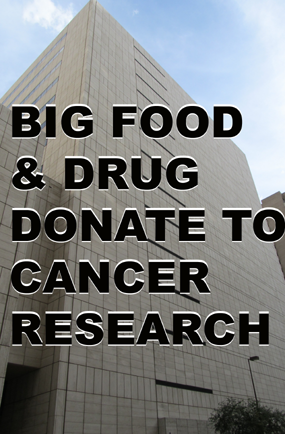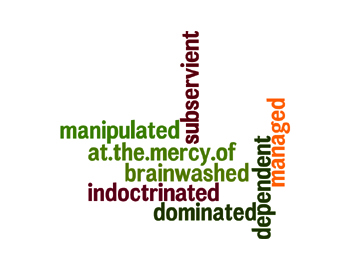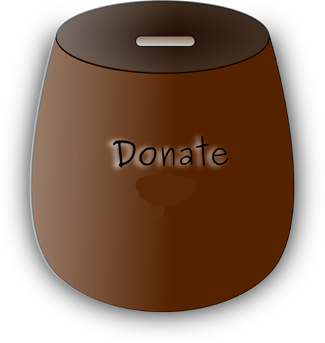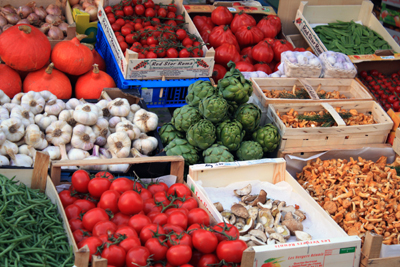Big Food And Drug Donate To Cancer Research
BIG FOOD AND DRUG DONATE TO CANCER RESEARCH (ISSUE 148) SEPTEMBER 30, 2014
By Diane Gold
BIG FOOD AND DRUG DONATIONS
 It’s no surprise that big food and drug donations to cancer research are common. In fact, it might be fair to say that a hefty chunk of annual fundraising revenue comes from this. Why? Well, think about this. If I give you a million dollars a year to live because I believe in your cause, you will be careful not to enrage me, if you want me to continue giving you a million dollars. In the same way, big food gives money to organizations who, in turn, go out of their way not to anger their donors.
It’s no surprise that big food and drug donations to cancer research are common. In fact, it might be fair to say that a hefty chunk of annual fundraising revenue comes from this. Why? Well, think about this. If I give you a million dollars a year to live because I believe in your cause, you will be careful not to enrage me, if you want me to continue giving you a million dollars. In the same way, big food gives money to organizations who, in turn, go out of their way not to anger their donors.
This means that organizations who are the recipients of Big Food and Big Drug donations go out of their way not to speak poorly about the bad nutrition in that very company’s product or any new studies that might shed negative light on Big Food or Big Drug for fear of losing a donation. So these so-called advocates for a specific disease are in bondage and cannot advocate and get their funding.
HONESTY FOR HEALTH
Most of us know at this point that anyone in business who wants to stay in business is going to have a hard decision to make if she finds bad in her business. If I discover my food product is causing tired blood or fat in the arteries, I have 2 choices: be ethical and tell everyone and work on fixing my product or tell no one so that I don’t lose my house, my car, my plane and my power.
Because we never know when a food is going to be found to be medically harmful and we never know who is withholding information, we have to know we are responsible for vetting our food. The industry is responsible, in its eyes, for making money and not getting sued, not keeping us as safe and healthy as possible.
Bruce Bradley, food advocate and author, in an interview known as Confessions Of A Former Big Food Executive, says,
“Think critically. Most claims and advertising by Big Food companies are meant to manipulate you, not educate you. Read your labels and do your research.”
 Having done food and label research since 1971, I know this to be true. We are at the mercy of companies that do not disclose scientific truth about their ingredients so that they can manipulate people into thinking the ingredient is harmless. They don’t label carcinogens, animal products, what’s in the natural or genetically modified products YET. Most of us are too busy to research these things themselves so depend upon transparency which is not.
Having done food and label research since 1971, I know this to be true. We are at the mercy of companies that do not disclose scientific truth about their ingredients so that they can manipulate people into thinking the ingredient is harmless. They don’t label carcinogens, animal products, what’s in the natural or genetically modified products YET. Most of us are too busy to research these things themselves so depend upon transparency which is not.
PINKWASHING AND THE BREAST CANCER AWARENESS CAMPAIGN
We all know the expression greenwashing. I’ve even seen it professionally in consulting for energy efficient lighting. It means everybody is using the word green to entice people to consume.
In the cancer space, there is pinkwashing. That means people are being blinded by the fact that a company produces something pink and connects to a breast cancer walk, march, DVD, pair of scissors, razor, dish, tennis ball. The connections I have just mentioned seem harmless enough. There are more, some whose parent companies produce food that is known to promote cancer.
Do we realize that the pink branding and donating to the cause may have nothing to do with health, especially when meat and dairy industries’ basic foods are known to cause vulnerabilities to cancer, chronic disease, environmental pollution through agricultural livestock?
We see a nice beautiful pink color on a pen with a breast cancer symbol, or a tennis ball. These items are not food, so there must be no evil in this. Unless the company that makes the pen is, in some way, connected to a food giant or other company that uses carcinogens or toxins.
DONOR RELATIONSHIPS
Here’s a good way to see the relationship between donations and future profits, reported by Samuel Epstein, M.D., in his report as Chairman, The Cancer Prevention Coalition, U Illinois, School of Public Health. One of the large pharmaceutical companies has made multi-million-dollar donations to the richest cancer society we have.
For its first 10 years, one of its divisions was a major producer of pesticides, known to cause cancer. Of course, the cancer society did not report this. The same drug company also makes the top breast cancer drug. Because it wants the cancer society to recommend it to its constituents, the drug company continues to donate, and the society continues to recommend the drug.
The same drug company also owns a bunch of cancer centers. Since it has given money to the society, the society recommends these centers. The millions of dollars in donations from the drug company gets the drug company hundreds of millions of dollars in return. And the society keeps getting its funding. These facts show monumental conflicts of interest, which would be happy capitalism (which I support) if it weren’t doing harm. Unfortunately, the society does not talk about nutrition as cancer preventer. The reason for this is obvious: the society does not want to speak out in any way that could jeopardize donations.
PERPETUATING THE PROBLEM
During October, Breast Cancer Awareness Month, we see pink cheese food products, carcinogenic, artificially colored and flavored beverages, pink baked goods companies, gmo breakfast cereal companies (which most breakfast cereals are) that are donating to the breast cancer cause. This would be wonderful if the manufacturers of these foods would, for that 1 month, remove any ingredient that was known to be or was suspected of causing the problem in the first place.
It’s no secret that a large fried chicken company donates to a breast cancer campaign. The former executive director of Breast Cancer Action said,
“They are raising money for women’s health by selling a product that’s bad for your health…it’s hypocrisy.”
THE RESEARCH
It will come as no surprise that the “research” that is done through our hard earned donated dollars and the dollars that come from the Big Food and Drug corporations very much support research to create the next best pill, rather than research on nutrition that may prevent a disease from happening at the root level from the food we eat. This is not to say that we don’t need research for pharmaceuticals. It does say that, at least, as much money, if not more research needs to be funneled to see how we can prevent or cure our ills through nutrition.
T. Colin Campbell says, in his book, Whole,
“Rather than preventing cancer, the NIH’s (National Institute Of Health) approach actually serves as a psychological inoculation against true health. There’s no need to change your diet. You can if you want. But it’s much easier and cheaper to take a pill. And, don’t worry, we’ve practically solved the problem by identifying the liver cancer gene. Just give us a few more years, and we’ll have a cure.”
In this statement, Dr. Campbell is talking about the mega industries’ working together with governmental agencies and popular disease organizations that interact with the public and the patients. These organizations often send their donations straight to pharmaceutical companies and leave out nutrition research which he and I believe to be where the research needs to be.
 Why is nutrition research left out of grant allocations? Follow the money. There is no way to make money if a company discovers that turmeric can alleviate cancer. There is no way a pharmaceutical company can make a drug from maca root. So the study money goes to the companies who gratefully take it in to research mechanisms that can outcome a hugely profitable product.
Why is nutrition research left out of grant allocations? Follow the money. There is no way to make money if a company discovers that turmeric can alleviate cancer. There is no way a pharmaceutical company can make a drug from maca root. So the study money goes to the companies who gratefully take it in to research mechanisms that can outcome a hugely profitable product.
Dr. Campbell also talks about the American Society for Nutrition and the Academy of Nutrition and Dietetics as providers of education, networking and leadership to professionals. He says,
“Their donations and PR, their awards and fundraisers just reinforce the system in which they are embedded, a system that lauds reductionist* research and ignores nutrition. The sad fact is that too many of these organizations are more likely to be found shilling for pharmaceutical companies and the food industry than advocating for patients or sharing scientific truths.”
*Reductionist refers to believing that studying 1 part of the body at a time gives the whole answer, rather than looking at how all systems work together in an integrative process.
CONCLUSION
Why do Big Food and Drug donate to cancer research and others and what’s problematic here?
As mentioned above, most people don’t have the time to study food. This coupled with the idea that food has never been taught in school on the level that is needed means that most of us are at the mercy of Big Food. This goes for Big Drug, also. We believe the commercials we have seen all our lives, even when we know they are created to sell rather than to give us knowledge. We believe our doctors about diet, even though most of them have never had but one single nutrition class in medical school.
 Most of all, we trust the organizations that hand out millions of dollars to research to have our best interest in mind. We don’t question that their hands are tied from speaking about the evidence against their donors. We don’t question why the research that meat and dairy cause cancer is not pursued heavily. We don’t question that so much research money goes to screening disease rather than to educating students and consumers to prevent disease in the first place through good nutrition. We look at organizations one at a time, so we don’t see that every powerful entity is donating money to push a power agendas.
Most of all, we trust the organizations that hand out millions of dollars to research to have our best interest in mind. We don’t question that their hands are tied from speaking about the evidence against their donors. We don’t question why the research that meat and dairy cause cancer is not pursued heavily. We don’t question that so much research money goes to screening disease rather than to educating students and consumers to prevent disease in the first place through good nutrition. We look at organizations one at a time, so we don’t see that every powerful entity is donating money to push a power agendas.
Each of us can make some effort on behalf of human health; we can all take a step to make our health matter to everyone, even more than money.
ACTION STEPS
Here are several simple action steps to effect change. It might be most practical to pick one and do it.
1) PICK ONE HEALTH CHARITY
Call them and ask them to point out their list of donors that are public. Notice which companies are involved. donations. Unfortunately, many donors remain anonymous. One might think that the call for anonymity would be because someone is humble and doesn’t want her name publicized. More often than not, anonymity protects association between donors and agendas they have just helped push.
2) CALL YOUR LOCAL PUBLIC SCHOOL SYSTEM

Find out what type of ongoing nutrition program they have for children starting in pre-K through high school. Encourage the school to speak with you about it and to enhance the program if it exists or install one, if it does not. If you don’t feel comfortable calling within your local district, call another one. There’s no harm in asking questions since they plant seeds.
3) CALL YOUR MOST LOCAL MEDICAL SCHOOL
Ask whether nutrition is in the curriculum, how many hours the courses are. If there is 1 course or less, urge them to make 1 course per semester the standard during all 4 years of school.
4) ASK YOUR MOST LOCAL UNIVERSITY LIBRARIAN WHAT
RESEARCH TOOLS S/HE HAS
Sometimes, librarians have to be pushed to help. Don’t be afraid to do so.
5) GO TO FOUNDATIONCENTER.ORG AND SEE HOW MUCH
INFORMATION THERE IS ABOUT GRANTS
Most of their information is about foundations whose information is open to the public. They do have some information for free and much information for pay about the private sector.
6) WRITE TO YOUR REP OR PRESIDENT TO CREATE A DEPARTMENT OF TRANSPARENCY FOR FOOD, PHARMA STUDIES, DONATIONS AND RESEARCH
![]()
If you wish to share your story, please hit reply in your email program to be contacted.
![]()
FEEDBACK
We value your feedback very much.
Please leave a comment below.
Please LIKE us on the website and at
WarriorsOfWeight on Facebook.
You can also follow us on Twitter: @warriorsoweight.
Thanks.
![]()
DIANE GOLD, PUBLISHER AND AUTHOR
Diane Gold, Founder of Warriors of Weight, Turning Habits Into Health, is a mentor in tai chi, kung fu and meditation, a music, fitness and stress expert, dedicated mom, studying plant-based nutrition, peaceful conflict resolution and habit replacement.
She has been researching relationships among the powerful. Today she looks at Big Food and Big Drug and Cancer Research Donations.She says,
“It’s wonderful when someone donates to much needed research, whether the research is reductionist or holistic. It is not wonderful when the research concern omits information because of its dependence on its donor.
“What I’ve been finding in every power sector is that power giants give money to create cheer leading teams. And, again, this would be OK if recipients of money, the cheerleaders, were not keeping valuable information from the public as a result.
“We may not be taught about power relationships in school because a powerful company may be giving money to the school board, before college, and to the university endowment fund of the institution we attend after secondary school.
“We may not be taught about nutritional strategies to disease because there is so much money to be made after we get sick: from surgery, procedures involving medical machinery and prescription drug therapy.
“I am not maligning donations; or surgery, medical procedures and pharmaceuticals. Hail to them all. I am asking each of us to be aware that each power sector has an agenda to complete. With open eyes, we can see it and learn how it affects transparency.
“Finally, let us all take good care of ourselves because we are worth it, even if we don’t feel it!”
![]()







